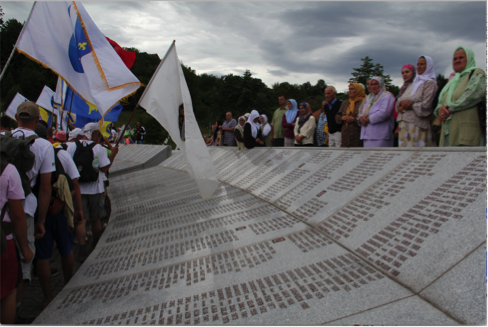The World is Watching: The International "Spotlight Effect" and the Politics of Memory in Prijedor and Srebrenica
Advisors: Volker R. Berghahn (Columbia), Svetozar Rajak (LSE)
This paper uses historical methods to explore the politicization of memory and commemoration surrounding the 1992-1995 War in Bosnia by examining the ramifications of international policies and actions on the memorialization of violence in Prijedor and Srebrenica, two communities in Bosnia’s Republika Srpska. During the war, Bosnian Serbs perpetrated war crimes against Bosniak civilians in both communities, although Bosniaks also targeted Serbs in those regions. The ways in which the war is commemorated in Prijedor and Srebrenica, however, stand in stark contrast. Today, Prijedor is characterized by prominent memorials to Bosnian Serbs killed in the conflict and a marginalization of memorials to Bosniaks. Srebrenica, however, is dominated by the $5.8-million Potočari Memorial Center – a graveyard for the reburial of Bosniaks – while monuments to Bosnian Serbs are relegated to majority-Bosnian Serb villages. International actors like the U.S. and UN employed vastly different policies to address the violence in each community. Srebrenica witnessed a high level of international involvement both during and after the war: UN ground forces from 1993-1995; NATO bombing after the enclave’s fall; and the International Criminal Tribunal for the former Yugoslavia’s (ICTY) pronouncement that the July 1995 massacre was genocide – the only such declaration in
Bosnia. By contrast, the violence in Prijedor was addressed with only diplomatic pressure and judged by the ICTY to be ethnic cleansing rather than genocide. These divergent international “spotlights” have directly impacted the communities’ commemorative cultures, thus hindering reconciliation by enshrining ethno-nationalist narratives of the war.
This thesis utilizes field research in Prijedor and Srebrenica, as well as archival documents from the UN, the ICTY, the Clinton and George H.W. Bush Presidential Libraries, and the Humanitarian Law Center in Belgrade.

